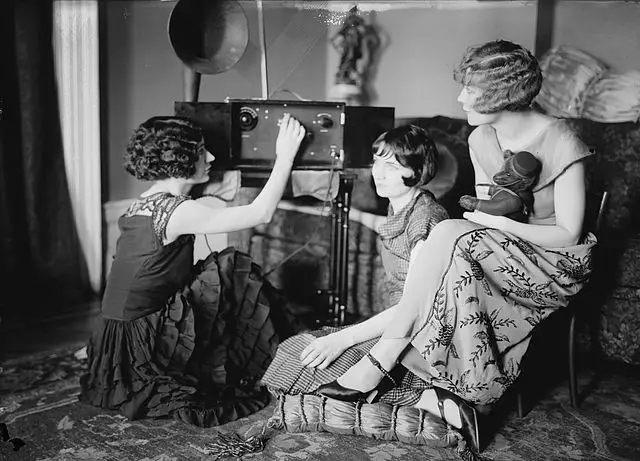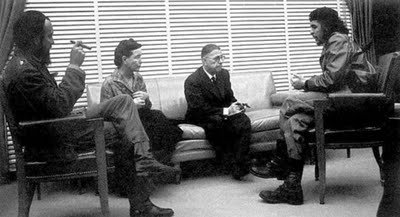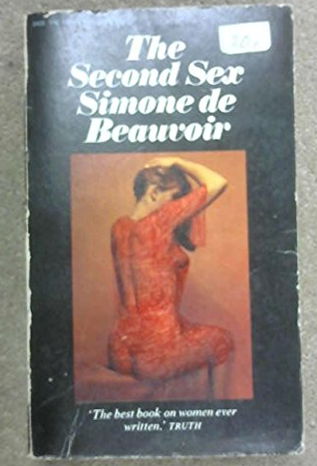Jonathan Dodd’s latest column. Guest opinion articles do not necessarily reflect the views of the publication. Ed
There was a time when I used to work on the Island Off the North Coast, until an estimable local employer saw the light and gave me a job here. Here. On the Wight. A person who has retired here with loads of money might think themselves in God’s Own Country. The next best thing is to be here with a job. It’s not always an easy thing to achieve.
My new job means that I don’t have to leave the Island every day on the Hovercraft, and it also means I don’t have to commute weekly to somewhere far away over there. I rather like this new state of affairs. I get to commute to Newport every day instead. I haven’t yet become a regular bitter complainer about the traffic, because the driving conditions on the other island are still fresh in my mind.
Not knowing what was on
I am occasionally asked to go over there as part of the new job, and that’s what I was doing this last week. I had half a morning in glorious Spring sunshine all to myself with the Satnav and Radio 4. Usually I listen to music in the car, but I tuned in for some news and traffic information, and found myself entranced by all the stuff I heard there.

I have noticed that all the programmes now have a little announcement afterwards stating that they can be found on iPlayer and various Websites, for downloading. But the problem for me there is not so much the fuss and bother of going to the Websites and doing the actual downloading, it’s not knowing what was on that I would be really interested in.
Extended periods of sighing and tutting
I have a satellite dish under the roof at home, and a box that lets me record TV programmes to watch later. I was pleased to discover that this box is cleverer than I thought. I had forgotten that the new series of Have I Got News for You had started, but it recorded it anyway, because it remembered from the previous series. That makes complete sense, because there’s nothing worse than finding out that there was something really good on but you’ve already missed the first part.
 I’ve long been in the habit of missing a good drama series and hearing about it far too late. I used to wait for a few months and if people still remembered how good it was, I’d buy the series on DVD. That worked really well for me. Since then, I’ve discovered iPlayer, and manage to catch up that way. Unfortunately, iPlayer doesn’t always buffer well, so there are extended periods of sighing and tutting and hitting the Pause button so it can catch up.
I’ve long been in the habit of missing a good drama series and hearing about it far too late. I used to wait for a few months and if people still remembered how good it was, I’d buy the series on DVD. That worked really well for me. Since then, I’ve discovered iPlayer, and manage to catch up that way. Unfortunately, iPlayer doesn’t always buffer well, so there are extended periods of sighing and tutting and hitting the Pause button so it can catch up.
In a touchingly British way
Of course, good dramas that aren’t watched by people who I talk to will just pass me by, so I guess that’s a simple matter of ‘What the eye doesn’t see, the heart won’t grieve over’. And I have tried to watch some things that are universally acclaimed, but not enjoyed them at all, like Breaking Bad, or I’ve loved things that everyone else hates. Or I spend lots of time trying to get hold of things I loved that never got saved or turned into DVDs at all.

In this way, radio and TV becomes a rather beautiful metaphor for life, and I can live with that. I rather like the wistful yearning to watch ‘The Innes Book of Records‘ again, knowing full well that they can’t be bought in any format. Or perhaps they’ll resurface years later, like all those lost BBC programmes from years ago. They used to reuse the tapes, in a touchingly British way, never thinking for a moment that someone might want to see them again.
So, how small is a neutron?
So there I was, on a Thursday morning, somewhere in North Hampshire or South Berkshire, in a traffic queue, listening to a programme in which Melvyn Bragg was attempting to extract knowledge about neutrons from several very highly-qualified scientists. There were questions like – ‘So, how small is a neutron?’

The answer was quite lovely. ‘Take a deep breath. You’ve just breathed in a million, million, million, million atoms of oxygen. Each of these atoms of oxygen contains a nucleus, which contains, among other things, a neutron. If you expanded that atom so it was the size of Wembley Stadium, that nucleus would be the size of a pea, in the middle of the centre circle.’
Their own ‘two-year contract’
There was a whole 45 minutes of talk like that, some of which I almost followed. I found it all very pleasing, knowing that there are people out there in the world who are amazingly knowledgeable and intelligent, looking after atomic power plants in a very careful way. What I loved about it was the enthusiasm. Melvyn kept laughing when he failed to understand anything at all, and the scientists would enthusiastically try to explain it all again, using words with fewer syllables.

After that I listened to an extract from a book about Jean-Paul Sartre and Simone de Beauvoir, the darlings of the French Existentialist Movement in Paris in the middle of the last century. They didn’t like the idea of marriage, so they created their own ‘two-year contract’, and stuck with it for 51 years, only ending with Jean-Paul’s death. It was an ‘open’ marriage, and they were often embroiled in very complex relationship affairs. Not so much ‘love triangles’ as ‘sexual pentagons’. Several miles went by while I pondered that.
Photographs of scantily-clad women
Apparently Jean-Paul was regarded as a beautiful child, but his masses of curly hair hid his developing eye problems, and when his father had his hair cut very short, he was revealed to be not at all attractive. Not that that stopped him carrying on as much as possible.

I also learned that Jean-Paul refused the Nobel Prize for Literature, and it was suggested that Simone should have been offered it instead for her seminal Feminist book, The Second Sex. This was overlooked, mainly because British and American publishers, worried about sales, used soft-focus photographs of scantily-clad women, or even entirely unclad women, on their covers. I read it. Perhaps more people would read philosophy books if they used racier covers.
A tantalising discussion of ‘Athleisure’ fashion
After that there was an edition of Woman’s Hour. First there was a tantalising discussion of ‘Athleisure’ fashion, about the existence of which I had no inkling. Apparently there’s a movement in fashion to show fit and healthy people wearing high-class sports gear. Inevitably these will be bought by people who aren’t fit or healthy in the usual way of believing that this will make them look either fit or healthy or both.

Various designers and manufacturers discussed this topic urgently in the studio, talking about leggings and elasticity and comfort and the need to replace their sportswear at least three times a year because it starts looking ‘used’. I thought about my own gym tee shirts, some of which are over ten years old, and felt the shame only the terminally-unfashionable can feel. Apparently ‘yoga pants’ are looser than leggings. And there’s a new range of close fitting legwear that can be classed as ‘athleisure’ items which are revolutionary because they have the stripe on the inside rather than the outside. It’s supposed to be much more flattering.
Training women to kill
I was amazed by how interesting all this stuff was, and how much I must be missing every day by not knowing what might be on the radio. My wonderful half-morning of Radio 4 programmes was crowned by an interview with a no-nonsense Army Captain (Call me Kate) who trains women recruits in one of those so-called ‘reality’ TV series. Apparently the Army is soon going to allow women soldiers to fight in combat on the front line. When she was asked how one would go about training women to kill, her answer was wonderful.
“You just do it.’

I wonder what Kate would think of Athleisure leggings with the stripe on the inside.
If you have been, thank you for reading this.
Image: Zoidy under CC BY 2.0
Image: Public Domain under CC BY 2.0
Image: Luke Ford under CC BY 2.0
Image: andrewcurrie under CC BY 2.0
Image: eager under CC BY 2.0
Image: Alberto Korda under CC BY 2.0
Image: © Jonathan Dodd
Image: Michael L. Baird under CC BY 2.0
Image: Israel Defense Forces under CC BY 2.0





